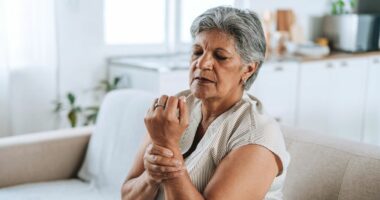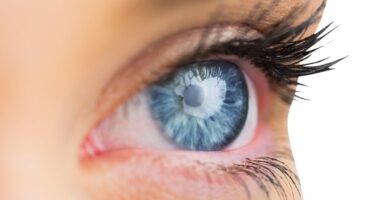Share this @internewscast.com
Research indicates that Gen Z is more prone to feelings of loneliness than any other age group. In a survey conducted among 2,000 adults, it was revealed that 37% of Gen Z often experience loneliness, as opposed to just 15% of Gen X and 11% of Baby Boomers.
About a third of those surveyed acknowledged a lack of regular human interaction. This study found that, on average, individuals are spending five-and-a-half hours a day in front of screens. Nearly half of the participants felt they engage more through digital communication than in person. As a consequence, a third admitted they have gone several days without speaking to anyone at all.
The trend of increasing loneliness is apparent, with over 40% expressing they feel lonelier now than they did five years ago. A significant 78% feel that loneliness is a growing societal issue, and one in five adults confessed they’d be uncertain about how to begin a conversation with a stranger.
This research was commissioned by McVitie’s, in collaboration with mental health charity Mind and the viral documentary series, A Mug of Life, aiming to address the nation’s loneliness issues and motivate people to start conversing more.
Will Shears, renowned for his candid interactions with strangers on social media, commented: “In an age where digital interaction is prevalent, it’s crucial to remember that meaningful connections can be made offline as well.
“My experiences of serving tea to strangers across the UK have demonstrated the profound effect simple conversations can have on mental well-being. A cup of tea, a biscuit, and a friendly chat can greatly uplift your spirits and positively alter the day for both you and a stranger.”
Andrew Berrie from Mind added: “In a world that has seen so many challenges, including a pandemic, political instability, war and unrest, and an ongoing cost-of-living crisis, it is perhaps no surprise that many of us are feeling lonelier now, compared to five years ago.
“Although loneliness isn’t in itself a mental health problem, having a mental health problem can increase feelings of loneliness. And some research suggests that loneliness can increase stress and is associated with an increased risk of certain mental health problems like depression and anxiety.
“We know talking isn’t the whole solution, but it can help us feel less alone, more able to cope and encouraged to seek support if we need to. We’re partnering with McVitie’s to encourage people to connect over a cuppa and a biscuit, and to have those conversations with family, friends, colleagues and neighbours.”
Sarah Webster, mental health ambassador at McVitie’s, said: “Whether it’s asking about someone’s day over a cup of tea and a biscuit, going for a walk with an old friend, or opening the biscuit tin during a work break to find out how your colleague is, these day-to-day activities are gateways to conversation.
“We want to see people put the kettle on, enjoy some biscuits and have a good old chat.”
FIVE CONVERSATION STARTERS:
- How are things going for you lately?
- What’s been on your mind recently?
- Would you like a cup of tea and a biscuit?
- What’s something you’re looking forward to?
- What’s your most memorable cup of tea?
















